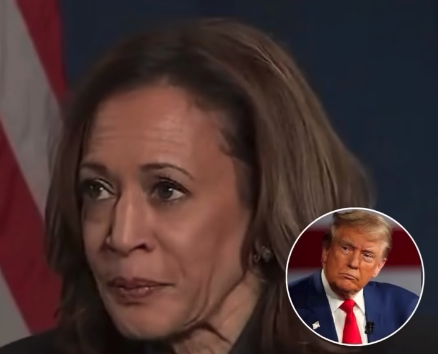As Trump Secures Historic Middle East Peace, Kamala Harris Reminds America What It Dodged
Regardless of political affiliation, there are moments when credit must be given where it’s due — and this is one of those times. Following President Donald Trump’s announcement last Wednesday that Israel and Hamas had agreed to the first phase of a landmark peace plan — including the return of the remaining surviving hostages — even some of his most persistent critics were forced to recognize the gravity of the achievement.
It marked a rare instance in modern Middle Eastern diplomacy where decisive leadership translated into tangible results — in a region where “peace talks” have often amounted to little more than endless negotiations and no progress.
“This means that ALL of the Hostages will be released very soon, and Israel will withdraw their Troops to an agreed upon line as the first steps toward a Strong, Durable, and Everlasting Peace,” Trump posted on Truth Social shortly after the agreement was reached.
In a surprising turn, even former Democratic presidential candidate Hillary Clinton momentarily set aside her long-standing criticism of Trump to offer praise. “I really commend President Trump and his administration,” Clinton said, urging global unity to sustain the process. “Let’s now support this process and bring it together — not just in a nonpartisan way in our own country, but literally internationally as a great global commitment to try to bring peace, security, stability, and a better future to the Middle East.”
However, when former Vice President Kamala Harris was asked over the weekend whether President Trump deserved credit for the Israel-Hamas peace agreement, her response was telling. Speaking through gritted teeth, she offered a vague, meandering statement that conspicuously avoided mentioning Trump by name.
“I commend the people who have been a part of this process. I commend the Qataris, the Egyptians, and the president,” Harris said, before quickly pivoting. “I really do hope it becomes real, and that the hostages are out, that Gaza is no longer being treated with such brutality of force, that aid goes in.”
During her appearance on MSNBC’s The Weekend, host Eugene Daniels lobbed Harris a leading question, asking whether she believed what occurred in Gaza constituted “genocide.” Her response — one part legal deflection, one part activist rhetoric — did little to clarify her position.
“I think that, listen, it is a term of law that a court will decide,” Harris said. “But I will tell you that when you look at the number of children that have been killed, the number of innocent civilians that have been killed, the refusal to give aid and support, we should all step back and ask this question and be honest about it, yeah.”
The timing and tone of her remarks drew sharp criticism, particularly as Trump was traveling abroad to participate in peace ceremonies linked to the very deal she hesitated to credit. For many observers, it served as a reminder of the stark contrast in leadership styles between the two figures.
As Washington Times columnist Tim Murtaugh put it, “There can be no doubt that if Kamala Harris were somehow president today, the world would be a far more violent place because she would never stand up to evil. She sees the bad guys as the good guys, and vice versa. The planet really escaped catastrophe when Trump beat her.”
Notably absent from the MSNBC discussion was any acknowledgment of how Hamas has historically treated Jewish people — including Harris’s own husband, Doug Emhoff — or individuals like Daniels himself, who is openly gay. The omission underscored what critics described as a striking moral inconsistency.
The truth is simple: had Kamala Harris ever made it to the Oval Office, this level of progress would likely remain out of reach. The Middle East would still be mired in instability, and the United States would be back to its “leading from behind” posture.
For now, however, it appears that the right leader has emerged at precisely the right time. On a day of such historic significance, Americans of every political persuasion have reason to feel grateful — and to reflect on just how many lives may have been spared by the pursuit of peace over politics.

